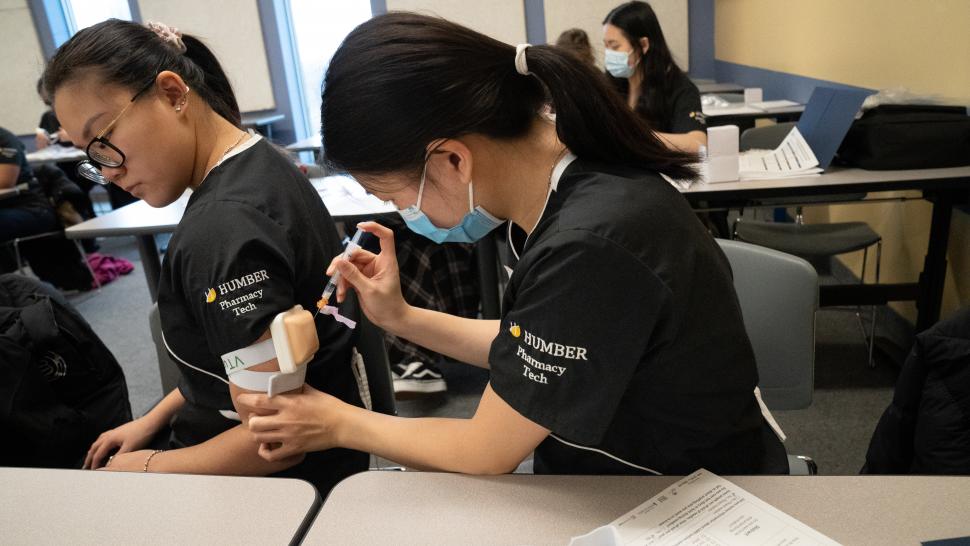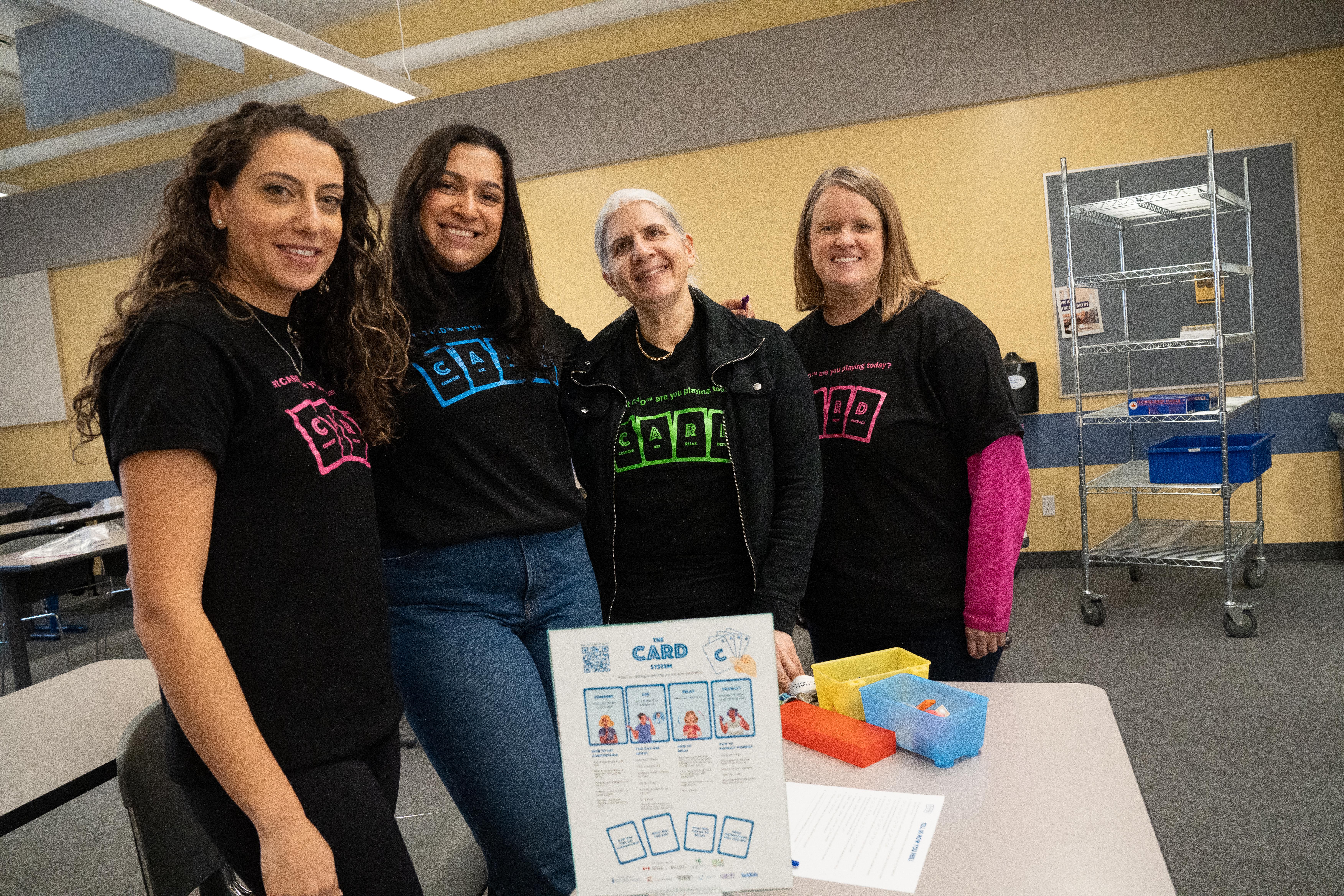
Humber College is the only college in Ontario offering injection training as part of the curriculum to Pharmacy Technician students.
Sandra Gerges, program coordinator and professor with Humber’s Pharmacy Technician program, said having the training as part of the curriculum benefits Humber students.
She said it makes them more employable as well. The students can start administering COVID-19 or flu vaccines after they receive their licence following graduation without having to take any additional training.
It also helps Humber’s program stand out and will help free up pharmacists to focus on their other clinical duties and responsibilities outside of delivering injections, said Gerges.
During the COVID-19 pandemic, there was a massive push to get people vaccinated and the Ontario government changed regulations to allow pharmacy technicians to give select vaccines.
The Ontario Pharmacists Association (OPA) created a training program, which Humber initially offered as optional. The College has since embedded the OPA training into the course curriculum and included learning outcomes related to injection training as mandatory for graduating from the program.
“What we’ve found is that a lot of our students felt empowered during this training and really enjoyed having it,” said Gerges.
Another part of the curriculum is Comfort Ask Relax Distract (CARD) training. It’s a vaccine delivery framework that reduces immunization stress-related responses – such as pain, fear and fainting – and improves the vaccination experience. This training is particularly relevant for dealing with children, many of whom have a fear of needles.
Gerges along with Anna Taddio, a professor with the Leslie Dan Faculty of Pharmacy at the University of Toronto, and several others are collaborating on research about pharmacy-based vaccinations, including the perceptions of pharmacy technician students learning about CARD.
One of the takeaways from the study was that the Pharmacy Technician students surveyed felt it improved their confidence in delivering vaccines and that they planned to integrate CARD into their work. They also felt the training should be mandatory.

“What they liked about the additional training (in injections and CARD) is that it gives them the capacity to assist patients who are anxious and help ease that,” said Gerges. “A pharmacist who’s extremely busy might not have the time to sit there and say ‘Okay, how can I make this interaction more patient-centred and more comfortable for you.’”
“The technicians can now give the injections, but what about everything else they could be doing to make it a better experience?” said Taddio. “We can avoid reactions like fainting, and highly anxious or crying children. CARD can make vaccinations safer and more fun for everyone involved.”
Other colleges across the province may soon be following suit.
Gerges noted the Ministry of Colleges and Universities is developing a new set of learning outcomes for all Pharmacy Technician programs in the province and that injection training will be part of it.